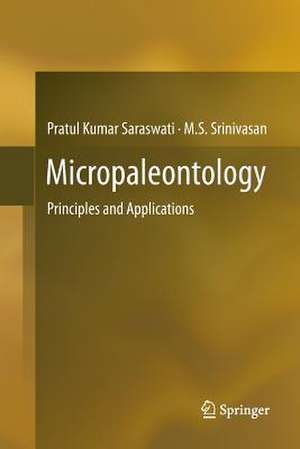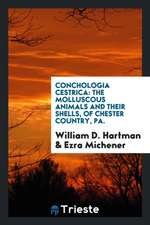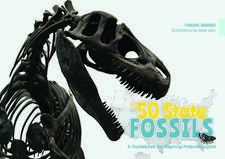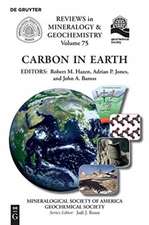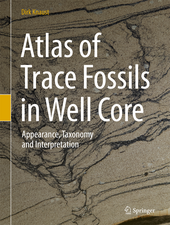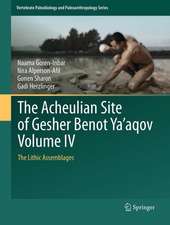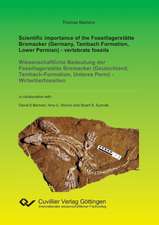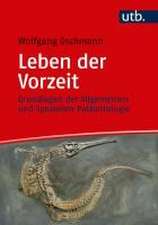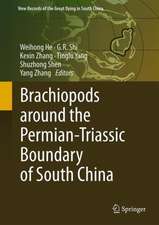Micropaleontology: Principles and Applications
Autor Pratul Kumar Saraswati, M.S. Srinivasanen Limba Engleză Paperback – 30 mar 2019
Coverage includes: foraminifera, ostracoda, coccolithophores, pteropods, radiolaria, diatoms, silicoflagellates, conodonts, dinoflagellates, acritarch, and spores and pollens. In this coverage, marine microfossils, and particularly foraminifera, are discussed in more detail compared with the other groups as they continue to play a major role in most scientific investigations. Among the various tracers of earth history, microfossils provide the most diverse kinds of information to earth scientists. This richly illustrated volume will help students and professionals understand microfossils, and provide insight on how to work with them to better understand evolution of life, and age and the paleoenvironment of sedimentary strata.
| Toate formatele și edițiile | Preț | Express |
|---|---|---|
| Paperback (1) | 581.01 lei 6-8 săpt. | |
| Springer International Publishing – 30 mar 2019 | 581.01 lei 6-8 săpt. | |
| Hardback (1) | 587.20 lei 6-8 săpt. | |
| Springer International Publishing – 29 dec 2015 | 587.20 lei 6-8 săpt. |
Preț: 581.01 lei
Preț vechi: 683.54 lei
-15% Nou
Puncte Express: 872
Preț estimativ în valută:
111.19€ • 114.87$ • 92.54£
111.19€ • 114.87$ • 92.54£
Carte tipărită la comandă
Livrare economică 26 martie-09 aprilie
Preluare comenzi: 021 569.72.76
Specificații
ISBN-13: 9783319791999
ISBN-10: 3319791990
Pagini: 224
Ilustrații: X, 224 p. 89 illus., 14 illus. in color.
Dimensiuni: 155 x 235 mm
Greutate: 0.34 kg
Ediția:Softcover reprint of the original 1st ed. 2016
Editura: Springer International Publishing
Colecția Springer
Locul publicării:Cham, Switzerland
ISBN-10: 3319791990
Pagini: 224
Ilustrații: X, 224 p. 89 illus., 14 illus. in color.
Dimensiuni: 155 x 235 mm
Greutate: 0.34 kg
Ediția:Softcover reprint of the original 1st ed. 2016
Editura: Springer International Publishing
Colecția Springer
Locul publicării:Cham, Switzerland
Cuprins
Part I: Principles.- Introduction.- Taphonomy and Quality of the Fossil Record.- Microfossil Biomineralization and Biogeochemistry.- Morphology, Taxonomy and Concepts of Species.- Basic Concepts of Ecology.- Part II: An Overview of Microfossils.- Calcareous-Walled Microfossils.- Siliceous-Walled Microfossils.- Phosphatic Microfossils.- Organic-Walled Microfossils.- Part III: Applications.- Biostratigraphy.- Paleoenvironment and Paleoclimate.- Basin Analysis and Hydrocarbon Exploration.- Paleoceanography.
Notă biografică
Pratul Kumar Saraswati is a Professor in the Department of Earth Sciences at the Indian Institute of Technology, Bombay. He has been teaching micropaleontology, paleontology and petroleum geosciences related courses for the past 25 years. As a biostratigrapher in Oil and Natural Gas Corporation he was also involved in hydrocarbon exploration in India.
M. S. Srinivasan is Professor Emeritus in the Department of Geology at Banaras Hindu University. He established the micropaleontology laboratory at BHU and initiated both teaching and research programme in micropaleontology and paleoceanography. His active participation in the Deep Sea Drilling Project (DSDP) and other international scientific cruises boosted deep sea research in India.
Textul de pe ultima copertă
This book will help readers learn the basic skills needed to study microfossils especially those without a formal background in paleontology. It details key principles, explains how to identify different groups of microfossils, and provides insight into their potential applications in solving geologic problems. Basic principles are addressed with examples that explore the strengths and limitations of microfossils and their geological records. This overview provides an understanding of taphonomy and quality of the fossil records, biomineralization and biogeochemistry, taxonomy, concepts of species, and basic concepts of ecology. Readers learn about the major groups of microfossils, including their morphology, ecology, and geologic history.
Coverage includes: foraminifera, ostracoda, coccolithophores, pteropods, radiolaria, diatoms, silicoflagellates, conodonts, dinoflagellates, acritarch, and spores and pollens. In this coverage, marine microfossils, and particularly foraminifera,are discussed in more detail compared with the other groups as they continue to play a major role in most scientific investigations. Among the various tracers of earth history, microfossils provide the most diverse kinds of information to earth scientists. This richly illustrated volume will help students and professionals understand microfossils, and provide insight on how to work with them to better understand evolution of life, and age and the paleoenvironment of sedimentary strata.
Coverage includes: foraminifera, ostracoda, coccolithophores, pteropods, radiolaria, diatoms, silicoflagellates, conodonts, dinoflagellates, acritarch, and spores and pollens. In this coverage, marine microfossils, and particularly foraminifera,are discussed in more detail compared with the other groups as they continue to play a major role in most scientific investigations. Among the various tracers of earth history, microfossils provide the most diverse kinds of information to earth scientists. This richly illustrated volume will help students and professionals understand microfossils, and provide insight on how to work with them to better understand evolution of life, and age and the paleoenvironment of sedimentary strata.
Caracteristici
Helps graduate students and professionals learn the basic skills needed to study microfossils --especially those without a formal background in paleontology Details and illustrates the major groups of microfossils as well as discusses their ecology and geologic distributions Explores applications of microfossils in reference to stratigraphy, paleoenvironment, paleoclimate, petroleum exploration, and paleoceanography
